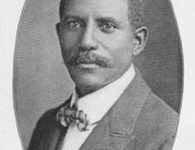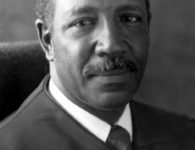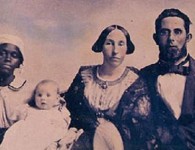Photo credits: Official Website of Dr. Cornell West
Since his 1973 graduation from the prestigious Ivy League institution, Dr. Cornell West (pictured) has been a mainstay at Harvard University for more than four decades.
The 67-year-old philosopher, political activist, social critic, and public intellectual is known for his firebrand speeches. Dr. West is also a prolific author who has written a total of 21 books. His voice and image have also been featured in a number of notable works in the field of entertainment.
The prestigious lecturer has appeared in eight motion pictures, including a pair of performances as “Councilor West” in two installments of the Matrix movie franchise (“The Matrix Reloaded” & “The Matrix Revolutions”). The Harvard-bred culture shocker has appeared on nearly a dozen music compositions.
Dr. West even has a three-disc audio discography of his own. But the world-renowned education professor’s 40-plus-year career at the USA’s knock-off version of Great Britain’s Oxford University has not come without controversy.
His early adoption of socialism, as well as its ideological and political tenets, made him a target of high-profile critics inside the far-right and contemporary liberal circles of American’s mainstream establishment. There were a number of times Dr. West waged ideological warfare with his own institution.
But finally, at the ripe age of 67, Dr. West’s academic tenure with Harvard University was not considered, at one point. However, the Ivy League school’s Crimson Newspaper reported on Friday, March 12 that Dr. West recently decided to part ways with Harvard–after he found out that university officials reconsidered his tenure.
Dr. West’s decision to part ways was motivated by a singular fact. After he found that his employer and platform provider caved to public pressure in response to its original decision to deny his further tenure, Dr. West was convinced that he was no longer wanted.
“The response was, ‘We accept renewal. We deny a tenure process. When the report put forward tenure, and it was then rejected, then I raised the question, ‘What was the reason for rejection?’” he said, according to The Crimson.
“When I spoke with the deans, they told me, ‘There is no possibility of a tenure review, but we could give you money and a prestigious chair. I said it was not about money or prestige,” the professor added.
The fact that it took public outcry to reverse course on Harvard’s “yes to renewal, no to tenure” decision about West’s future is what fails the most to sit well with him.
“After the public outcry, the administration changed their minds: they said, ‘Now we’re open to a tenure review. You can’t impose and force people to respect you in that sense. That’s another reason why I knew I had to go. I’m the same guy that I was before and after the public outcry,” he added.
A big mess before the public is being made about Dr. West’s departure dispute with Harvard–even after his well-proven, long, storied, illustrious, and enviable career there. The professor’s fringe benefits of his marriage to elite higher education have definitely benefited him in places and spaces beyond the lecture hall.
Some critics of this unfolding media melee (such as myself) have been left to ponder two possibilities that may or may not be the predominant perception, which to the average general public member is reality.
Is Dr. West greedy for additional glory in more years past his prime or is Harvard simply performing its financial and civic duties–by opening the door on behalf of a respectable protégé for the retirement-aged professor–who he can groom (with pay) behind the scenes?
That brings this Dr. West critic back to the title and theme of one of the firebrand’s published works: The Rich and the Rest of Us: A Poverty Manifesto (with co-author Tavis Smiley). Other than decrying the USA’s brand of capitalism, West’s legacy as a poverty-killing and opportunity-creating businessman delivered no tangibles.
Such tangibles fall in the category of delivering high-paying, high-skilled jobs for his community via his own private company. When it came to business, Dr. West stayed in the business of selling his own speaking engagements, books, film, and audio appearances like a business–while telling his faithful flowers “Joy is plentiful during your struggle.”
Also, West (and Smiley, for the matter) did not help himself to stay on Harvard’s good side during the two-term presidency of its most prestigious American alumnus of all: Former U.S. President Barack H. Obama. West sniped publicly at Obama during his whole time in the White House.
“[Obama has] ended up being the black mascot of the Wall Street oligarchs and corporate plutocrats!” the professor said publicly about the former president while scathing him.
Though I am probably even more critical of Obama for his disastrous and unforgivable Libyan mission, I still saw West as a man with limited critiquing room on the issue of foreign affairs. However, at least Obama (like a man) admitted that the crushing U.S. bombardment of Libya and the wholesale sectarian slaughter afterwards was “my Iraq.”
Black supporters of Obama called West an “Uncle Tom” and accused him of being on the same team with the racist mainstream whites on both sides of the ideologue who secretly and publicly despised him. In all, Dr. West’s ideological and semi-political flip-flopping made his critics and supporters alike wonder who’s side he was on.
He accused the U.S. government of reckless carnage-creation in the 2003 invasion of Iraq. West, for the most part, is anti-war. However, his demonization of former Iraqi President Saddam Hussein’s rule never took into account his birth nation’s complicity in creating the “Butcher of Baghdad.”
The U.S. military poured a fortune into Hussein’s war machine when America wanted war with Iran during the 1980s. Though Dr. West’s pro-democracy values on the home front are well-known, his views on the dangers of America’s foreign “democratization” take more digging to find.
His conversation transcript with Eduardo Mendieta of the Logos Journal, which was released during the Iraq war’s first years, was one rare example where West called out America’s imperialist foreign acts. At the same time, West was living in the elegant trappings of Ivy League elitism–certainly enjoying spoils of the wars he spoke out against.
A man in any position of power and prestige has a duty to (like Obama did) admit his shortcomings in an unadulterated fashion. On the contrary, Cornell West is not doing that with contrition–or at least by publicly saying: “It is what it is. What can I say? Harvard and I have not always had a happy marriage.”
Nevertheless, despite the contentions, Professor West will have something within his grasp that fame cannot give a man of his stature: Peace. What he does next in his figurative empty nest remains to be seen.





















No comments